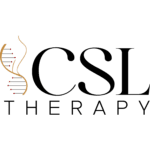CSL Regulatory Codes & Violations
The Regulatory Governing Bureau is charged with promoting quality CSL Therapy care by generating Standards of Care to be adhered to by practitioners in the Body Altering Aesthetics industry. In furtherance of these goals, the Bureau can refer violations to State Health departments for investigations and fines.
The grounds for practice suspension in America are many and varied. Because the Bureau of CSL Therapy regulates and oversees compliance by registered aestheticians, licensed practical massage therapists, advanced practice registered nurses, certified nursing assistants, certified medical technicians, licensed electrologists, and licensed cosmetologists, the agency exercises governance over many members of the medical profession in America with and through partnerships of other medical boards.
The standards of care and regulations our applicants, certificants, and licensees are held to create the gold standard for the safety of stakeholders and the general public. CSL Therapy Organization (hereafter referred to as “CSL Therapy”) is committed to upholding the highest standards of patient privacy and confidentiality.
Regulations & Code Enforcement
Certificants and licensees of CSL Therapy, including CSL Therapists and related personnel, shall adhere to the following regulations: (RGB= Regulatory Governing Bureau)
- Regulation Number: CSL-RGB-001. Patient Privacy and Confidentiality.
- Regulation Number: CSL-RGB-002. Informed Consent.
- Regulation Number: CSL-RBG-003. Competence.
- Regulation Number: CSL-RGB-004. Safe Medication Awareness & Supplement Support.
- Regulation Number: CSL-RGB-005. Ethical Conduct.
- Regulation Number: CSL-PB-006. Professional Boundaries.
- Regulation Number: CSL-RGB-007. Reporting Unsafe Practice and Abuse/Neglect
- Regulation Number: CSL-RGB-008. Documentation.
- Regulation Number: CSL-RGB-009. Cultural Competence.
- Regulation Number: CSL-RGB-010. Conflict of Interest.
- Regulation Number: CSL-RGB-011. Professional Appearance.
- Regulation Number: CSL-RGB-012. Emergency Response.
- Regulation Number: CSL-RGB-013. Scope of Practice.
- Regulation Number: CSL-RGB-014. Patient Advocacy.
- Regulation Number: CSL-RGB-015. Pressure Application.
- Regulation Number: CSL-RGB-016. Infection Control.
- Regulation Number: CSL-RGB-017. Domiciliary Environments Conversion
- Regulation Number: CSL-RGB-018. Treatment Procedures.
- Regulation Number: CSL-RGB-019. Supervision & Oversight.
- Regulation Number: CSL-RGB-020. Advertising and Marketing.
- Regulation Number: CSL-RGB-021. Client Complaint Resolution.
- Regulation Number: CSL-RGB-022. Client Education.
- Regulation Number: CSL-RGB-023. Quality Assurance and Improvement.
- Regulation Number: CSL-RGB-024. Non-Discrimination.
- Regulation Number: CSL-RGB-025. Record Retention.
- Regulation Number: CSL-RGB-026. Internal Conflict Resolution.
- Regulation Number: CSL-RGB-027. Equipment and Facility Safety.
- Regulation Number: CSL-RGB-028. Cross Lateral Scope of Practice for Different Levels of Certification.
- Regulation Number: CSL-RGB-029. Use of Protective Equipment.
- Regulation Number: CSL-RGB-030. Follow-Up and Aftercare.
- Regulation Number: CSL-RGB-031. Insurance and Liability.
- Regulation Number: CSL-RGB-032. Adherence to Research Ethics.
- Regulation Number: CSL-RGB-033. Patient Abandonment.
- Regulation Number: CSL-RGB-034. Negligence.
- Regulation Number: CSL-RGB-035. Fraudulent Billing.
- Regulation Number: CSL-RGB-036. Diversion of Medications.
- Regulation Number: CSL-RGB-037. Substance Abuse.
- Regulation Number: CSL-RGB-038. Misappropriation of Patient Property.
- Regulation Number: CSL-RGB-039. Impersonation.
- Regulation Number: CSL-RGB-040. Patient Neglect.
- Regulation Number: CSL-RGB-041. Physical or Verbal Abuse.
- Regulation Number: CSL-RGB-042. Discharge.
- Regulation Number: CSL-RGB-043. Patient Privacy Breach.
- Regulation Number: CSL-RGB-044. Inadequate Supervision of Assistive Personnel.
- Regulation Number: CSL-RGB-045. Inadequate Handoff Communication.
- Regulation Number: CSL-RGB-046. Eligibility to Teach in The Body Altering Aesthetics Industry
Violations: Course of Actions
- Investigation: CSL Therapy will initiate an internal investigation to gather facts and evidence related to the alleged violation. This may involve interviews with relevant parties, review of documentation, and any other necessary steps to understand the situation fully.
- Notification: If the violation involves potential harm to a client or patient, other vulnerable healthcare providers, CSL certificants, and/or stakeholders, CSL Therapy will first notify the violating party or parties before alerting appropriate authorities unless immediately required by law.
- Review of Policies and Procedures: CSL Therapy will review its policies and procedures with respective parties to determine if there were any systemic issues that contributed to the violation. Necessary updates or changes to policies may be implemented to prevent future occurrences. A certified letter of compliance will be sent violating parties to discuss the matter after internal investigation is complete.
- Disciplinary Actions: Depending on the severity of the violation, disciplinary actions may be taken against the individual or individuals responsible. These actions can range from warnings of healthcare violations, retraining, cease and desist with forwarding instructions; to suspension; request for termination of employment or membership; or an escalation recommendation will be made if an amicable internal solution is unable to be met.
- Reporting to Licensing or Accrediting Bodies: If applicable, CSL Therapy will report the violation to relevant licensing or accrediting bodies as required by law or Body Altering Aesthetics professional standards. This may result in further investigation and potential sanctions by these external organizations and licensing boards up to but not exclusive of fines, suspension of licensure, and/or incarceration.
- Client or Patient Support: If clients or patients were adversely affected by the violation, CSL Therapy may provide support, resources, or referrals to help address their needs and concerns. They may also make recommendations and provide advise on behalf of general public safety.
- Education and Training: CSL Therapy may implement additional training and education programs for staff to reinforce compliance with regulations and best practices and to prevent similar violations in the future.
- Corrective Actions: CSL Therapy may develop and implement corrective actions to address any issues identified during the investigation and prevent future violations.
- Legal Action: In cases where violations involve criminal activity or serious ethical breaches, CSL Therapy may involve law enforcement and cooperate with legal authorities in pursuing legal action.
- Public Relations and Communication: CSL Therapy will determine the appropriate way to communicate the violation and the actions taken to address it to clients, patients, staff, and the public to maintain transparency and trust.
- Continuous Monitoring: CSL Therapy will institute continuous monitoring and auditing procedures to ensure ongoing compliance with regulations and standards.
- Reputation Management: CSL Therapy may engage in reputation management efforts to address any damage to its reputation resulting from the violation.
It’s important to note that the specific actions taken will depend on the unique circumstances of each violation, and CSL Therapy will likely follow its own established procedures and protocols in responding to such incidents. Additionally, legal and regulatory requirements may vary by jurisdiction.
American National Surgical Standards– ACBAA/RGB 143-2020 DESIGNATION
As the mark of an equitable, open process, the ACBAA SMS designation is valued by national and international stakeholders, fostering acceptance and use of a voluntary consensus standard and the overall strength of the U.S. system.
The SMS designation demonstrates that a standard’s development process satisfies the U.S. government’s definition of a voluntary consensus standard and compliance with U.S. policy regarding federal reliance on voluntary consensus standards: OMB Circular A-119 and the National Technology Transfer and Advancement Act.
Under NTTAA, Federal agencies are responsible for evaluating the efficacy of their conformity assessment activities. Each agency must coordinate its activities with those of other appropriate agencies and the private sector.
This applies to all federal agencies that set policy for, manage, operate, or use conformity assessment activities and results, both domestic and international—except activities carried out pursuant to treaties.

